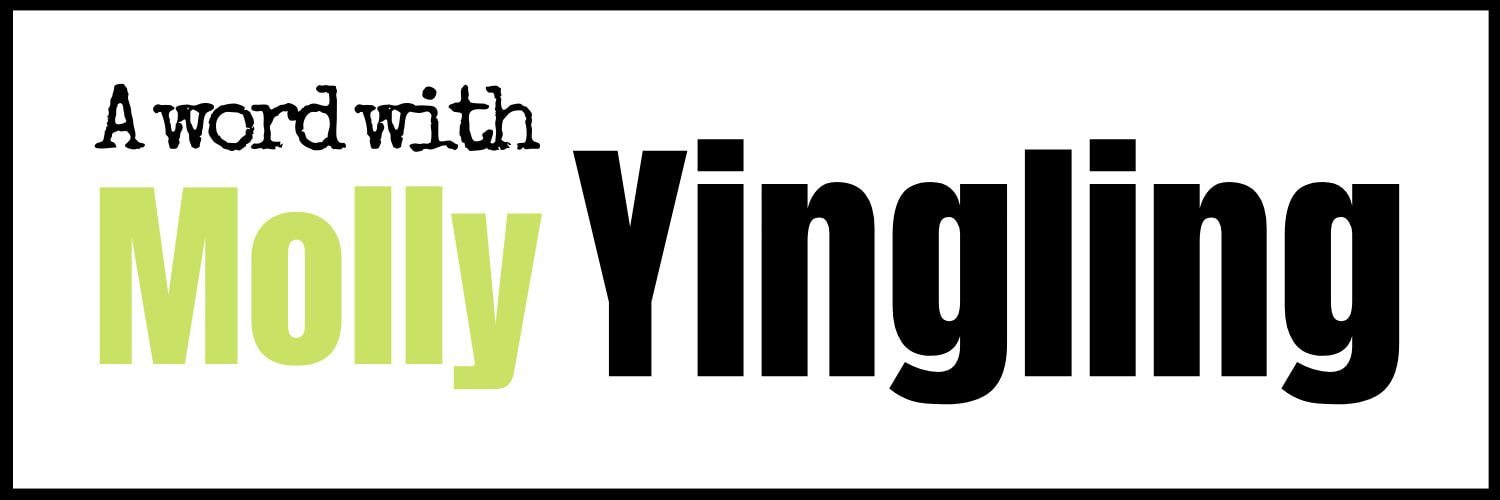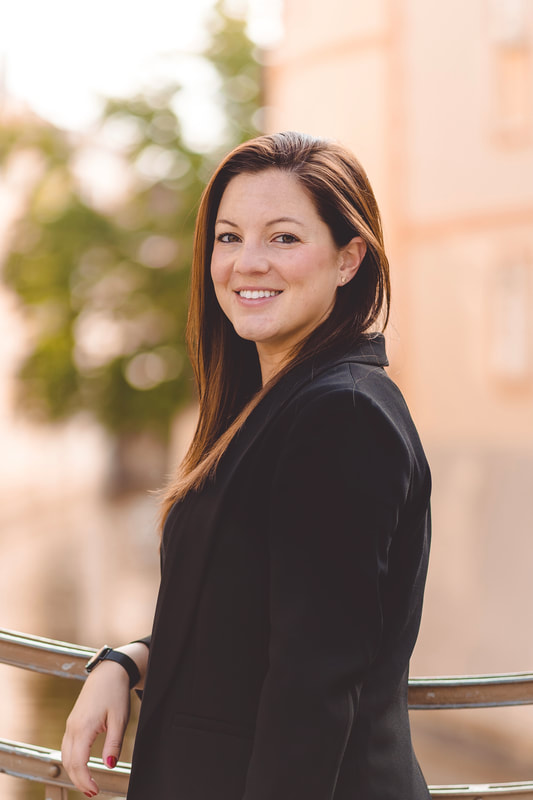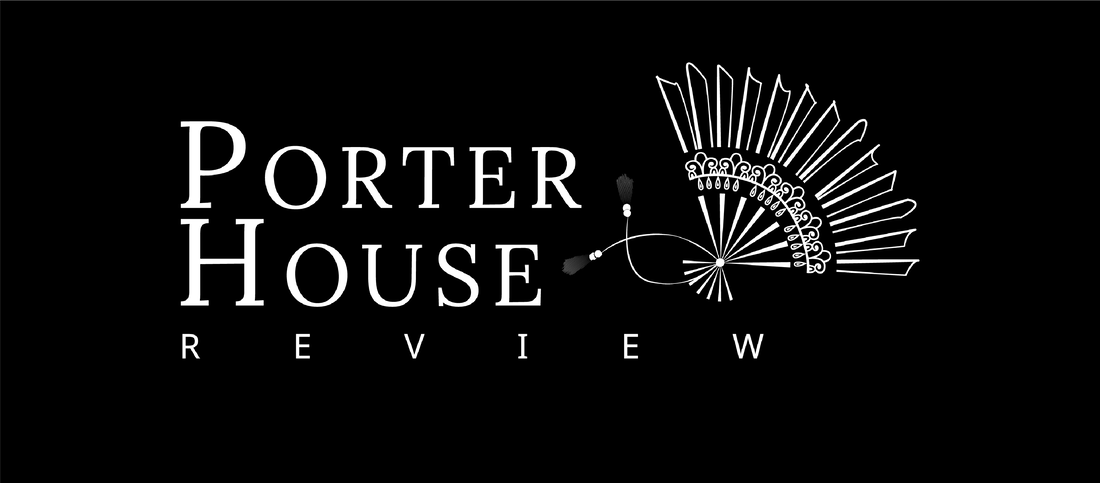By L.A. Hawbaker | October 2022
|
Molly Yingling is the managing editor of Porter House Review, a graduate-run online literary journal based out of Texas State University in San Marcos, Texas. Porter House Review was selected as the Best Debut Magazine by the Community of Literary Magazine and Presses in 2020. Authors published in the journal have been awarded Best of the Net, Best Microfiction, and the PEN/Robert J. Dau Short Story Prize for Emerging Writers.
The journal publishes fiction, nonfiction, poetry, interviews, reviews, and craft blogs. Porter House Review publishes every other week; every fourth week is dedicated to Submittable submissions. Yingling discusses what it’s like on the editorial side of publishing and her thoughts on reading fees, rejections, cover letters, and hosting literary events in the "Mermaid Capital of Texas." What do you do as a managing editor?The managing editor oversees what we call our "creative content section." So that's your fiction, your poetry, and your nonfiction — the sections that we pay our submitters for. My great section editors are the ones really in there reading pieces. After those decisions are made, the ball gets rolling, and I'm making sure we're on track to publish, to pay our writers, and all the working parts are flowing.
|
What are Porter House Review's submission stats?
We receive an average of 1,400 submissions each calendar year. Our acceptance rate is approximately 2%. We strive for a 2-6 month maximum response time.
How much does the journal pay?
Typically, we pay about $200 per fiction piece. For flash fiction, it's $50. For nonfiction, we do $75. And then for poetry, we pay $50 per poem. For visual art pieces, we pay about $25 per piece.
As a publication that pays contributors, where does your funding come from? What are your thoughts on submission fees?
We receive a portion of our funding from the university, and we do charge a $3 reading fee for our submissions. The business model for lit mags is a concern for many writers and publishers. It's hard to run a lit mag and be able to pay writers and get funding elsewhere.
But it's also difficult to be a writer. A $3 submission fee doesn't seem like that much until you're sending it out to 20 different places. So we're trying to strike a balance ... There's no submission fee to submit to our blog or our reviews section, for example. We do not charge submission fees unless there is the potential for the author of an accepted piece to get compensated. We also offer several free submission periods throughout the year — our next free period runs from November 1 to November 8.
But it's also difficult to be a writer. A $3 submission fee doesn't seem like that much until you're sending it out to 20 different places. So we're trying to strike a balance ... There's no submission fee to submit to our blog or our reviews section, for example. We do not charge submission fees unless there is the potential for the author of an accepted piece to get compensated. We also offer several free submission periods throughout the year — our next free period runs from November 1 to November 8.
Porter House Review is an online journal. Any thoughts on print versus online?
I would love to do a print magazine. But the business model makes it hard. I admire that you [MASKS Literary Magazine] are doing print, because I had a work that was published in a print journal … it was just so great to hold it in my hands. But it is hard on the editorial side to make that happen. It’s something I would love to be able to do.
What are your editors looking for in submissions?
When you see it, and it makes you feel something, and you're excited to publish it, that's what we're looking for. I know that that is as vague and as general as you can get, but I'm sure that writers who are submitting know that there are things they've read that have really moved them.
What should writers include when they submit to you?
We ask for a cover letter — which we do read — and a short bio. It's not a CV; you don't need to list every single publication. Three to four prominent publications is good.
Just tell whoever's reading the slush pile, "This is who I am, this is my background, and here's my piece." But really, it's the story or the poem or the essay that is going to be what's speaking for you.
You don't want to detract from your writing. Your writing should stand on its own. You can have all the publications and degrees and accolades in the world, but we want to read your story.
Just tell whoever's reading the slush pile, "This is who I am, this is my background, and here's my piece." But really, it's the story or the poem or the essay that is going to be what's speaking for you.
You don't want to detract from your writing. Your writing should stand on its own. You can have all the publications and degrees and accolades in the world, but we want to read your story.
What if a submitter doesn't have previous publication credits?
Absolutely, let a journal know that. Because for me, I would love Porter House Review to be the place where you got your first publication. We're excited to discover new writers. We get those notifications on social media where someone's like, 'Hey, my very first story is out today!" That's awesome for us.
Do you solicit work from outside writers and poets?
There is a budget for soliciting work. And I'm hoping that that's something we explore this year. It’s certainly not ever going to be for lack of quality work from our submitters, because we do receive more great work than we are able to publish ... But work from a well-known, outside author can boost the journal’s profile, and that just gets more eyes on our other writers as well.
If I were in that position — if I were a prominent writer who was being solicited — I would be really flattered by that. I would love to help a journal boost their profile.
If I were in that position — if I were a prominent writer who was being solicited — I would be really flattered by that. I would love to help a journal boost their profile.
What's it like dealing with rejection from the editorial side?
On Twitter, writers post about their rejections and the way that those rejections are worded. They'll try to figure out whether something's a form rejection versus a tiered rejection. Sometimes writers feel very discouraged.
I'm also a writer who submits. I have received many more rejections than I have acceptances. I know that can feel like you aren't a good writer. Now that I have been on the other side of that and sent out rejections ... most of the time, we would love to be able to publish almost everything that we've received. When we reject things, it's because there's not space. Sometimes it's that we published something similar before. Maybe your work would be better suited elsewhere. There are so many reasons for rejection that don't have anything to do with quality.
After having worked as an editor, I care so much less about [my own writing's] rejections than I ever did before. So I think something I would really like writers to know is don't be discouraged. That's obviously easier said than done.
I'm also a writer who submits. I have received many more rejections than I have acceptances. I know that can feel like you aren't a good writer. Now that I have been on the other side of that and sent out rejections ... most of the time, we would love to be able to publish almost everything that we've received. When we reject things, it's because there's not space. Sometimes it's that we published something similar before. Maybe your work would be better suited elsewhere. There are so many reasons for rejection that don't have anything to do with quality.
After having worked as an editor, I care so much less about [my own writing's] rejections than I ever did before. So I think something I would really like writers to know is don't be discouraged. That's obviously easier said than done.
Publishing controversial content or sensitive subject matter is under a lot of debate right now. What are your thoughts?
We're interested in hearing unique perspectives: That's something we include in our mission statement — but we're also very interested in inclusivity and raising underrepresented voices.
So anything that goes against that mission statement, I'm very comfortable with our section editors declining. As a submitter, you should be researching the mission statements and the submission guidelines of the journal you're submitting to.
There are very difficult lines to be drawn whenever you're talking about free expression. I don't like the idea of censorship, that you can't or shouldn't write about certain things. But when you're dealing with literary journals, they're holding you as a writer that others should read. And if a journal is going to be comfortable promoting the work that it's published, it needs to be accepting things that are in line with its values,
Striking that balance requires a good match of journal and writer. It's really something that needs to be considered on a case by case basis.
Writing is a great way of dealing with difficult moments in our life, dealing with our own trauma. All forms of art can deal with difficult topics. It can be very therapeutic and very liberating and illuminating to address controversial topics through writing; at the same time, you want to find a publisher who is on the same page as you and is proud to share that work
So anything that goes against that mission statement, I'm very comfortable with our section editors declining. As a submitter, you should be researching the mission statements and the submission guidelines of the journal you're submitting to.
There are very difficult lines to be drawn whenever you're talking about free expression. I don't like the idea of censorship, that you can't or shouldn't write about certain things. But when you're dealing with literary journals, they're holding you as a writer that others should read. And if a journal is going to be comfortable promoting the work that it's published, it needs to be accepting things that are in line with its values,
Striking that balance requires a good match of journal and writer. It's really something that needs to be considered on a case by case basis.
Writing is a great way of dealing with difficult moments in our life, dealing with our own trauma. All forms of art can deal with difficult topics. It can be very therapeutic and very liberating and illuminating to address controversial topics through writing; at the same time, you want to find a publisher who is on the same page as you and is proud to share that work
Any interesting things Porter House Review does outside publishing contributor work?
In the past we have had themed readings, both over Zoom and in person, featuring our contributing writings and students from Texas State's MFA program. For example, last February we hosted a successful love poetry reading.
Also, Texas State is in San Marcos, Texas — and I don't know if you know this, but that's the official Mermaid Capital of Texas. San Marcos has mermaid statues everywhere and a mermaid festival. So last year, we had a week of mermaid-themed content to call back to what's happening in town. We did a publication of water-themed reading recommendations. We did interviews with people who work with the River Conservation Society, and we interviewed one of the artists who designed one of the mermaid statues in town. It's always great to connect with the community in that way.
Also, Texas State is in San Marcos, Texas — and I don't know if you know this, but that's the official Mermaid Capital of Texas. San Marcos has mermaid statues everywhere and a mermaid festival. So last year, we had a week of mermaid-themed content to call back to what's happening in town. We did a publication of water-themed reading recommendations. We did interviews with people who work with the River Conservation Society, and we interviewed one of the artists who designed one of the mermaid statues in town. It's always great to connect with the community in that way.
What goals do you have for future events and projects?
I would love to do some kind of an event that involves generating new work. I have trouble writing. I have trouble being a self-starter. Whenever it comes to my own writing. I'm always looking for other things to do ... other than doing my own work. So I'm always looking for opportunities that can really motivate me to sit down and write. I'm always looking for those opportunities.
I think a lot of times we get caught up with all the other opportunities that there are in life, in an MFA program, in graduate school. It's easy to put your own projects on the back-burner. So I'd love it if Porter House Review could help get people to sit down and write.
I think a lot of times we get caught up with all the other opportunities that there are in life, in an MFA program, in graduate school. It's easy to put your own projects on the back-burner. So I'd love it if Porter House Review could help get people to sit down and write.
Molly Yingling (she/her) is a writer and attorney from central Pennsylvania. She is a graduate of Gettysburg College, Villanova University School of Law, and the University of Houston Law Center. She is currently a fiction candidate in Texas State University’s Creative Writing MFA program. Molly’s work has appeared in Your Impossible Voice, The Bangalore Review, HAD, Porter House Review, and Atticus Review. Twitter @molly_yingling.
This interview has been edited and condensed for length.









